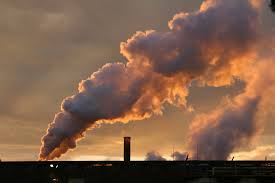Over 90 per cent of the world’s population is breathing poor quality air, an analysis by the World Health Organisation (WHO) has revealed, with air-pollution responsible for over 11 per cent of deaths globally.
Across the globe, one out of every nine deaths was the result of air pollution-related conditions in 2012, the WHO report states. Of these deaths, more than three million were attributable solely to outdoor air pollution.
This WHO report released on Tuesday was based on data collected from more than 3,000 sites across the world.
Fresh data in a report from the UN’s global health body “is enough to make all of us extremely concerned,” said Maria Neira, the head of the WHO’s department of public health and environment.
Poorer countries have much dirtier air than the developed world, according to the report, but pollution “affects practically all countries in the world and all parts of society,” Neira said in a statement.
“It is a public health emergency,” she said.
“Fast action to tackle air pollution can’t come soon enough,” she added, urging governments to cut the number of vehicles on the road, improve waste management and promote clean cooking fuel.
According to WHO experts, the problem is most acute in cities, but air in rural areas is worse than many think.
The data focuses on dangerous particulate matter with a diameter of less than 2.5 micrometres, or PM2.5, as per report.
Toxins like sulfate and black carbon are included in PM2.5, which can penetrate deep into the lungs or cardiovascular system.
These include deaths from conditions such as lung cancer and stroke.
Air with more than 10 microgrammes per cubic metre of PM2.5 on an annual average basis is considered substandard.
In some regions satellite data has been complemented by ground-level PM2.5 measurements, but in much of the developing world ground readings remain unavailable, forcing the WHO to rely on cruder estimates, report added.
Despite these data gaps, Neira said the UN agency now had more information than ever about pollutants in the planet’s air.
Using both satellite and ground measurements “is a big step forward towards even more confident estimates of the huge global burden”, of dirty air, she added.
Data is more solid for outdoor pollution, which is blamed for more than three million fatalities annually. But indoor pollution can be equally as harmful, especially in poorer developing world homes where cooking often involves burning charcoal.
Nearly 90-percent of air pollution-related deaths occur in low and middle income countries, the WHO said.
China, Malaysia and Vietnam — are the most affected regions, the data showed.
Using a different data set, the WHO reported in May that 80 per cent of the world’s city dwellers breathe poor quality air, a figure that rose to 98 per cent in poorer countries.
The report results in calling for dramatic action against pollution that is blamed for more than six million deaths a year.
Latest World News
